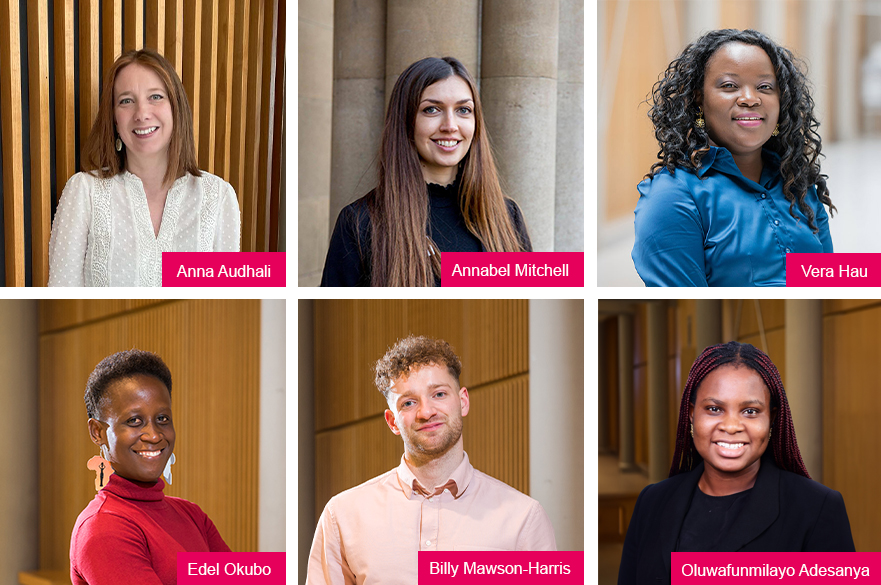Students from Zimbabwe
Interested in studying at Nottingham Trent University (NTU)? On this page, we’ve included everything you’ll need to know – meet NTU’s Advisors for Zimbabwe, learn about our entry requirements, and sign up to keep in touch with us.
Welcome

We’re NTU’s Team Africa representatives – Annabel, Edel, Vera, Funmi, Anna and Billy.
We’re delighted that you’re thinking about joining us. We regularly travel to events throughout Africa and love meeting new students and families who are interested in higher education. Hopefully one day we'll be able to meet you too!
If you’d like us to keep in touch with you please register with us and we’ll send you updates on what’s happening at the University. We’ll also let you know if we're visiting Zimbabwe so we can arrange to meet if you wish, or you can contact us directly.
What are the entry requirements for students from Zimbabwe?
The entry requirements for Bachelors and Masters degrees at NTU for students from Zimbabwe are listed below. Select your qualification from the list to see what you need to join a course at the University.
Please note that these entry requirements are guidelines only. If you have questions about your qualification and it is not listed here, please contact us.
Foundation courses at Nottingham Trent International College (NTIC) leading to undergraduate courses.
Year One entry to Bachelors degrees based on UCAS Tariff points where:
A = 48 UCAS points
B = 40 UCAS points
C = 32 UCAS points
D = 24 UCAS points
Please see individual course information for UCAS Tariff point and subject specific entry requirements.
Grade percentage of 64% or more from a recognised university in Zimbabwe will allow entry onto Postgraduate (Masters) degrees.
Can be considered for Postgraduate research courses (MPhil/PhD).
To meet the University’s language requirements, you’ll need one of the following:
Zimbabwe General Certificate of Education at Ordinary Level - Grade C
Zimbabwe General Certificate of Education Advanced Level - Grade A-E, or grade O
Zimbabwe General Certificate of Education AO Level (GCE AO Level) - Grade A-E or 1-6 OR
You’ll need an IELTS qualification at the appropriate grade or an alternative English language qualification accepted by the University.
Students who do not meet the English language requirements may be required to take a pre-sessional English language (PEAP) course.
Sub-Saharan Africa High Achievers Award
We are pleased to offer up to £3,000 fee reduction to all high achieving Sub-Saharan African students. To be eligible you must:
- Achieve a 2.1 or 1st class degree from a recognised university in your Home nation.
- Be a resident and national of a Sub-Saharan African county.
LLM Sub-Saharan Africa Scholarship
Nottingham Law School (NLS) is pleased to offer one competitive scholarship up to a value of half your tuition fee.
We welcome applications from students from Nigeria who are holding an offer to study on a NLS full-time LLM Masters programme (not including LPC/BTC).
The scholarship will be awarded to the candidate who most closely meets the criteria for the award.
Meet our students
More support with your application
NTU-approved education counsellors
Need more advice on applying and visas? We always recommend that you get advice from an NTU-approved education agency. Find one from our worldwide network near you.
International and European applicants FAQs
Considering studying at Nottingham Trent University as an international student? Explore our frequently asked questions for 2025 entry to find key information on applications, visas, scholarships, and more.
Your application
Everything about applying to NTU as an international student in one place. Entry requirements by country, preparation courses and advice on Student visas. What to do when you receive an offer, planning your journey and preparing for study.